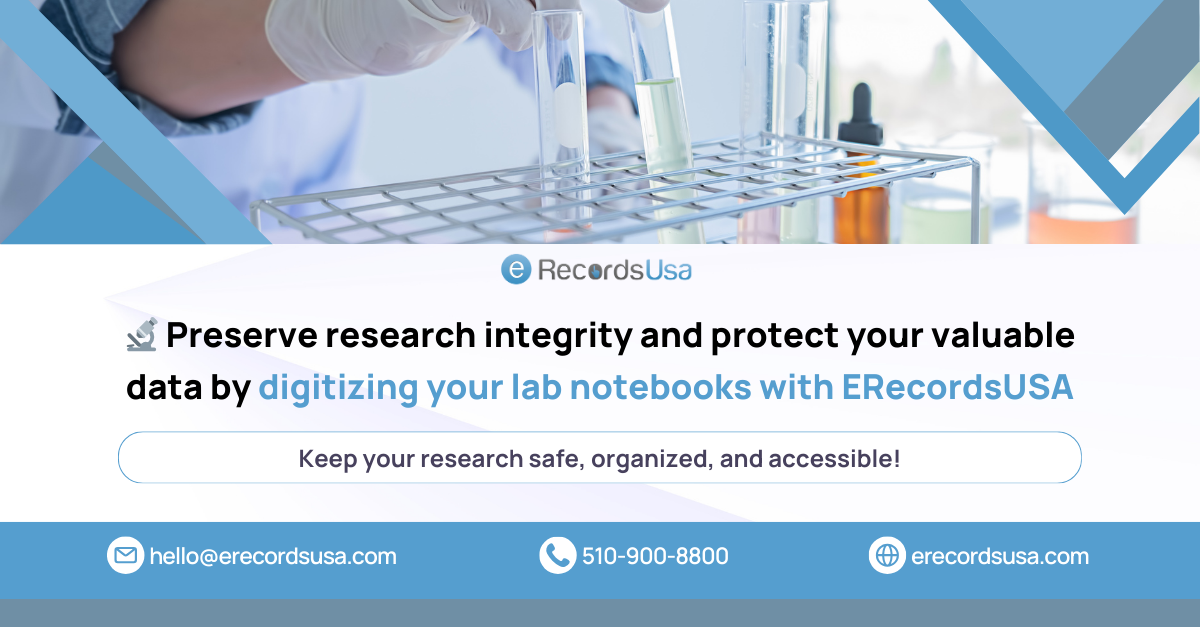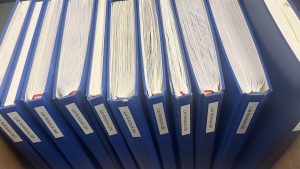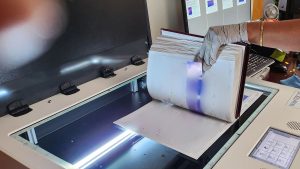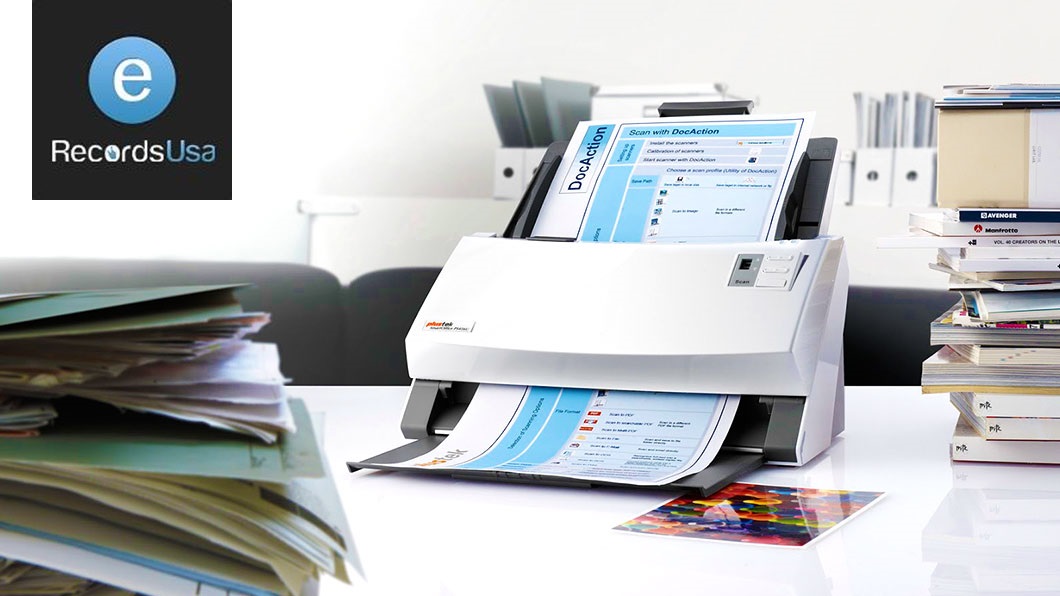For many research professionals, managing data manually in lab notebooks can be a time-consuming and error-prone task. This traditional method often leads to inefficiencies and inaccuracies, which can compromise research integrity. Adopting a structured digitization process can significantly alleviate these challenges. Digital lab notebooks allow researchers to handle data more accurately, organize data more effectively, and enhance security.
This transition to digital formats ensures compliance with scientific standards and helps maintain the integrity required in today’s scientific landscape. This article will guide you through the practical steps needed to successfully digitize your lab notebooks.
What Are the Challenges of Manual Lab Data Handling?
The following are the key challenges that research organizations face when handling lab notebooks manually:
-
Maintaining Accurate Documentation
Research integrity demands precise and timely documentation of experimental data, procedures, and results. Manual data entry is prone to human error, compromising the accuracy and reliability of research findings.
Digitizing lab notebooks improves accuracy, ensures easy access, and reduces the risk of documentation errors.
-
Managing Data Retention and Disposal
Regulatory requirements dictate how long to retain and when to dispose of lab data. Establishing robust data management processes is complex and time-consuming, requiring systematic handling of retention schedules and secure disposal of sensitive information.
Digitized lab notebooks eliminate physical storage needs, making data retention more manageable and secure. Scanned documents can be password-protected and stored securely, ensuring that only authorized personnel have access. This digital approach simplifies compliance with retention regulations and enhances data security.
-
Ensuring Efficient Data Approval Processes
Manual approval workflows can cause delays, inefficiencies, and security concerns. These outdated methods hinder communication and collaboration, leading to compliance issues.
Document scanning services streamline workflows by digitizing notebooks, facilitating faster approvals and minimizing errors. This systematic approach ensures compliance and boosts operational efficiency.
-
Complying with Data Privacy Regulations
Adhering to data protection regulations, such as GDPR, is essential but challenging with manual methods. Implementing data encryption, access controls, and breach response plans is necessary for compliance and data protection.
Scanning services implement advanced security measures, including encryption and access control, to protect sensitive information. Digital storage simplifies compliance tracking, audit reports, and ensures adherence to privacy regulations.
Ready to Eliminate Manual Errors? Start Digitizing Your Lab Notebooks Today!
What Are the Steps in Lab Notebook Digitization?
To effectively digitize lab notebooks and enhance research integrity, follow these streamlined steps:
-
Preparation Phase
Assess your current notebook usage and decide on your digitization goals and requirements.
Document scanning & management services like eRecordsUSA offer flexible media handling options—either drop off your materials or schedule a pick-up.
Their team will sort and prepare documents, photos, books meticulously for digitization.
-
Digitization Methods
Using professional-grade document scanning equipment, service providers digitize your materials with precision.
They offer indexing and titling services to ensure organized and retrievable digital records.
You can choose between manual entry, automated solutions like OCR, or a hybrid approach that combines both for accuracy and efficiency.
-
Data Management
A lab notebook scanning service provider will conduct a thorough audit of your files to ensure quality. The digital files are then meticulously organized and categorized using metadata and tagging systems for easy retrieval.
Secure cloud storage solutions keep your data safe and accessible.
-
Implement Security Measures
Protecting your data is a top priority. Scanning companies encrypt digital files, establish access controls, and regularly back up data to prevent loss.
Once the digitization process is complete, you can download your files. There is also an option to return the original materials or securely shred and recycle them.
Take the First Step Toward Efficient Research – Contact Us to Start Your Digitization Process!
Best Practices for Training and Compliance in Lab Notebook Scanning
Converting physical lab notebooks into digital format ensures compliance with data management standards. Here’s how:
- Quick Access and Tracking:Digital notebooks allow for faster and more accurate retrieval during audits or investigations.
- Enhance Privacy and Security:Restrict access to authorized personnel. Encryption and password protection enhance the security of sensitive information.
- Data Retention: Digital records simplify compliance with data retention laws, ensuring secure storage and proper disposal.
- Compliance Reporting:Advanced search capabilities in digital documents save time during compliance checks.
Why Choose eRecordsUSA for Lab Notebook Scanning Services?
At eRecordsUSA, we understand the importance of maintaining research integrity. Our specialized lab notebook scanning services ensure accurate conversion of physical notebooks into digital formats, allowing for version control, tracking changes, and transparency in research.
By digitizing your lab notebooks, you not only safeguard your data but also improve organization, streamline workflows, and enhance research efficiency. With eRecordsUSA’s expertise in secure data handling, you can focus on your research without the burden of manual record-keeping.
Don’t Wait! Contact eRecordsUSA Now to Secure Your Research Data with Our Professional Lab Notebook Scanning Services!
















